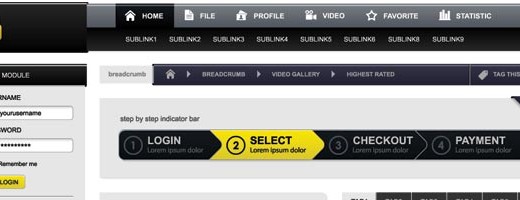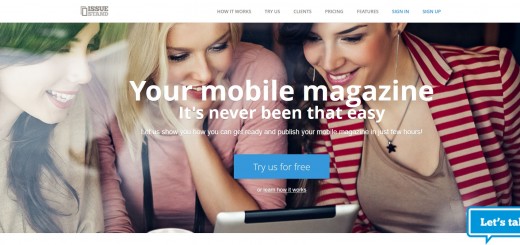Skills Designers Don’t Learn – But Should
7
Many people tend to believe that the work of a designer is merely related to creativity and expertise in different design software. Unfortunately, nothing can be farther from the truth. To become a well-rounded, complete and successful designer, one should have a good balance of creative and non-creative skills. These non-creative skills will help you to bring in new clients or hold on to existing clients successfully.
Before continuing reading this post did you already join our Twitter and subscribe to our RSS feed? If not, rush and join us now to receive updates of new posts and free resources.
This article will focus on these all-important non-creative skills that every designer should have.
Passion and Curiosity
Passion is the vital driving force of every individual, be it an the owner of a business or a new graduate starting out his career in a company. It is no different for designers too. One should be absolutely passionate about design to be successful in it. There is a world of difference between unimpassioned and passionate work. As a designer, you want your work to stand out and this is possible only if love what you do. You should also have a passion to be successful and this will propel you to work towards getting there.
Curiosity is another important trait for a designer. One should constantly be curious to know what will happen when you make changes to the color, layout, font or other aspects of the business. This curiosity will help you to come up with better designs. You may even be surprised at the final result that you will get when you constantly explore. This is the key to getting superior design that will make a downright impact on the viewer.
Communication
Communication is probably one of the most important skill for a designer. It can make a big difference between getting and losing a project. You should be able to use verbal skills to express your talent and commitment to your clients. Though your work can showcase your designing skills, it is simply not enough for someone to hand you a project. You need to tell them all the right things that you will be able to custom create for them to make a good impression.

Image by shutterstock
Besides getting new clients, it also helps to retain your existing ones and build a long working relationship with them. With verbal skills, you can have a better idea of what your client wants. You can discuss problems and can even talk about the clients ideas and why its better to do it differently and so on. It helps you to get a lot of clarity with your work and also satisfies the client because you will be able to give them what they need. In other words, communication can be the life-line of your business.
Marketing
Being a good designer is one part, but marketing your skills is a completely different one. You need to have the latter skill to promote your talent. Marketing your talent not only brings in more business for you, but it also takes you on the path that can show the world what you are capable of.
There is a lot of competition from designers around the world and the Internet has made it an even playground for everyone. So, to get a project and develop your business, you need to create a brand or niche for yourself and this can be achieved through marketing skills.
Awareness of Business Trends
Business trends keep changing all the time. Change is the essence of business and this is what keeps it fresh and going. These trends can happen anytime and any event can be its catalyst. To be a part of a new wave of trend, its important that you are aware of it. You should be abreast of the latest changes and should keep an eye out for anything. To achieve this, its not only important that you do your job well, but you should also look at what your competitors are doing. This will help you to identify the initial phase of a new trend and you can jump on it to make the best use before the rest of the world joins you. Another way to keep track of business trends is to look for magazine and online blogs related to design as they are sure to report the first signs of anything new.
Business Knowledge
Though extensive in-depth knowledge is essential for a designer, it may not be enough to run your business. You need what is called business knowledge. Yo need to understand the role that design plays in your clients’ business and what you can do to give a further boost to his or her business through your design. This is a lot more complex than what it sounds. To get this knowledge, you need to know how businesses operate, competition, demand and supply, economic factors and above everything a keen eye for detail and a good business acumen.

Image by shutterstock
You should look at creating value to your clients’ business through your design. This will also help you to identify the different areas where design can help your client. When you discuss these areas with your client, they will not only be impressed, but will also give you more work. This also helps to cement your relationship with the client and can accelerate your business.
Quest for Technical Know-how
Technical understanding is going beyond your comfort zone and exploring different software and ideas that can make your design better. For example, if you have been using a particular software to design websites for sometime, its time to get a hold of its next version or another software that can enhance your work. This quest for technical know-how will constantly improve the quality of your work and in many cases, it may even surprise you. So, be open to the idea of anything new and never be afraid to experiment. This can help you to stand-out in a crowded world.
Project Management
Project management is often confused with the software industry. But, it is all-permeating in every aspect of business. It is about staying organized, sticking to schedules and constantly reviewing your work for possible flaws and improvements. It also teaches you to be flexible to accommodate last-minute changes from the client. When you follow these tenets of project management, you are sure to stay relaxed and complete your job well-ahead of your schedule.
Leadership is an integral part of project management and it is an important skill that can give you an edge over your competitors. It is also about taking initiatives and not waiting for instructions from the client on how to do and what to do. Basic leadership and project management skills can make you proactive and organized and this can go a long way in doing a great job as well as maintaining a perfect balance between your personal and professional life.
Networking
Networking and business go hand in hand. The help and support of others is vital and this is exactly what you get with networking. You need to find the right contacts who can give a boost to your business. You have to meet like-minded people to exchange your thoughts and ideas and the right business people to showcase your talent. These people can give you some fresh ideas and it can be a wonderful opportunity for you to interact with like-minded individuals who have an interest in design.
Conclusion
In short, there are many non-creative skills that a designer needs apart from creativity and good knowledge of designing software. These non-creative skills can help to sustain and boost the business. Therefore, its important that these skills are also learned by every designer.





I like the maketing part. Thanks
Thanks so much, these are very useful.
That is some inspirational stuff. Never knew that opinions could be this varied. Thanks for all the enthusiasm to offer such helpful information here.
“Many people tend to believe that the work of a designer is merely related to creativity and expertise in different design software”
Unfortunately, some people hire you thinking that’s merely your job.
I agree with you that many clients are totally annoying and frustrating. I hate this type of clients and mostly refuse the project if possible.
Me too, it is the most important part in the process
Great post…